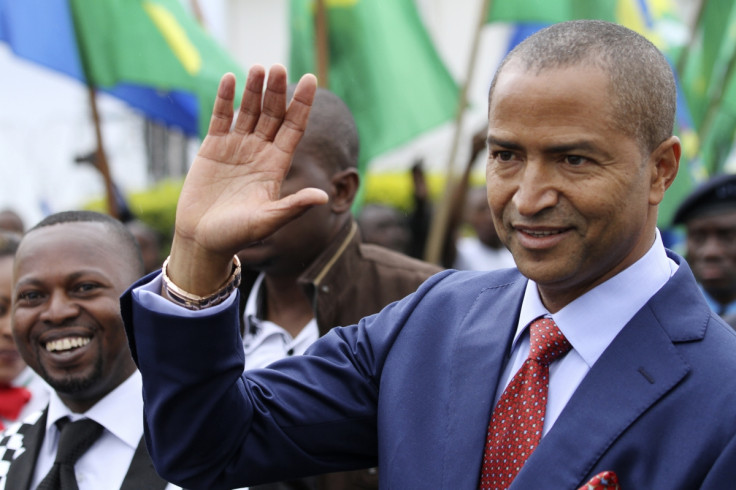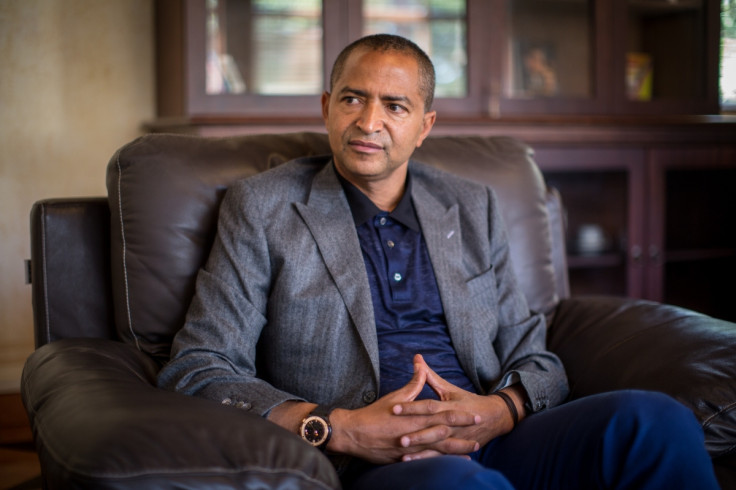DRC: Why is Moise Katumbi's presidential election candidacy so important?

As uncertainty grows around whether presidential elections in the Democratic Republic of Congo (DRC) will go ahead in November 2016, Moise Katumbi, who announced on 4 May that he is entering the presidential race, is seen as the biggest challenge to force the electoral calendar back on track.
The incumbent, President Joseph Kabila has been accused of delaying the electoral process as he seeks to prolong his rule into a third term, which is barred under the constitution and is at present a prevalent theme in a number of African countries. The international community, including the United Nations, France and the United States have weighed in publicly about the need for free, fair, and timely elections, and many in Congo believe Katumbi is a powerful opposition figure.
H, a close adviser told IBTimes UK the presidency had been Katumbi's ambition after he resigned in September 2015 and engaged in large consultations with the opposition, civil society, the Church, NGOs and international community to try and "put the forces to work".
"It's also an answer to the aspirations of a good proportion of the Congolese population, who want change. In Kinshasa, most people you speak to say they are tired of it all, there no longer is state authority, no rule of law," the adviser said.
Katumbi's long-awaited political programme
DCI Group spokesman Craig Stevens, who represents Katumbi, told IBTimes UK that the appointment from the opposition of Katumbi as their common candidate was a major objective "to increase the chances of electoral success and therefore ensure political change at the head of the state". Quoting Katumbi, Stevens highlighted the fact that negotiations with other opposition parties and politicians "would be conducted in this sense".
In Congo, however, many claim Katumbi has no political programme.
A spokesman for Lutte pour le Changement (Lucha - The Struggle for Change), a pro-democracy movement, told IBTimes UKhe believes the most important thing now in Congo is not to have declarations of candidacy, but to ensure that November elections are held within the set constitutional deadlines, and that there is a strong political programme that convinces Congolese people, and answers their needs and most recurring issues.
"Until now, we have none of it: we don't have the certainty the elections will be held, the opposition still seems divided, and we don't know what the opposition coalition - who are proposing to replace Kabila - will offer else to Congolese as a programme. What do they want to do with this Congo?"
He added: "Within the Front Citoyen, we have always pleaded for a coherent and convincing programme from the opposition, which may be a joint one, and then to find the right candidate to bring that programme to life. Not the contrary - not picking candidates first before thinking about what to do with the country if they get voted into power."
H, who spoke to IBTimes UK under condition of anonymity, said the former governor has surrounded himself well. "Whatever we may say, before him, there were no or little discussion between the opposition groups, and he is the one who managed to bring them together. The key points of a society project that has been drawn in the past few months will be made public in the coming days."
He added: "This is the culmination of these months of exchange and consultation, and, as Katumbi said himself, a response to demands of the G7, the Collectif des Nationalistes, and the Alternance pour la République 2016 to be their candidate."

A kick-starter for the elections?
Katumbi's candidacy is also described by commentators as an important step in Congolese politics, as the alliance he now represents includes strong personalities from the Kivu, and politicians such as Delly Sesanga (of the Alternance).
"Many in the G7 have similar career paths - they fought internally within the ruling party before making their dissatisfactions public and leaving the party," the adviser explained.
Referring to recent declarations from Kabila's entourage that led many to believe he intends to run for a third term - he is yet to make an official announcement - the spokesman for Lucha questioned whether Katumbi's presidential candidacy could push Kabila to hold elections in time.
"Personally, I don't think Katumbi's calls for elections to be held in time will push Kabila to carry them out in November. It's not because Katumbi announces his candidacy, or tomorrow someone else, that it will change things. There is no more mystery that Kabila intends to stay into power for a third term."
He added: "What will change the situation is the citizen mobilisation, and actions by the opposition."
The observer disagreed. Highlighting Katumbi's unofficial meetings with very high-level diplomats in France, Belgium, the United Kingdom and the US, he stated Katumbi's candidacy "could be a push for Kabila to carry out the elections".
"The international community is quite diplomatically offensive already - the French, for instance, are putting a lot of pressure on Kabila even though DRC is less in its bosom compared to other nations [ it is a former Belgian colony] - as it is also looking for a good alternative once Kabila finishes his second term," the observer said.
"Many see Katumbi as someone good, who also has the capability to win - which is rarely the case with opposition leaders in strong regimes in the region, who have tended to fail to build a real opposition."
Just last week, the US State Department issued a statement in which it stated: "The United States supports the Congolese people in their pursuit of timely, free, and fair elections and underscores the importance of open political space to a credible electoral process."
© Copyright IBTimes 2024. All rights reserved.






